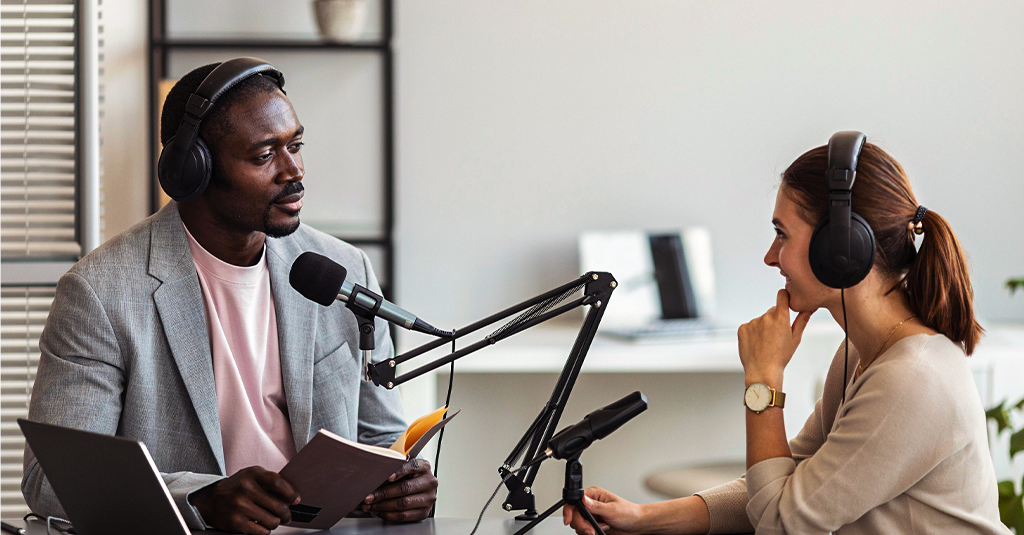Talking to a journalist can cause many emotions when we are not ready for it. Suddenly, your company launches an innovative product, and a great journalist asks you for an interview. As the head of your business, you don’t want to get it wrong, or you will damage your company’s reputation.
Media training is a frequently necessary tool to ensure that a media interview goes as planned, especially to correct some mistakes that can throw it all away.
The first thing we must internalize is that the journalist won’t harm us, so we don’t have to be afraid of him, because it is this fear that, many times, will make the interview not go as we wish.
For this purpose, we have listed the nine main mistakes you should avoid in an interview with the media, to ensure that the result is the best one possible:
1. Not preparing the interview
This is the so-called rookie’s mistake, although it happens far more times than it should be expected – the interviewee not preparing for the interview he/she is about to give, not knowing what the main topic will be, who is the journalist and the media he/she works for. There is, therefore, homework to do, to which a press officer plays a key role: to brief the client. That is, to pass on to the interviewee the topic of the interview, the information about the journalist and the medium he works for, the main key ideas and numbers that may be of interest to highlight. Do not forget to study the journalist who will interview you, as he will certainly do the same.
2. Not looking the journalist in the eyes
Avoiding eye contact with the journalist may give the idea that you are hiding some kind of information, or that you are avoiding the question and may lead the journalist to doubt your character. Be assertive and face the journalist with no fear.
3. Not answering what is asked
Dodging the question is never the best way to avoid a potentially sensitive topic. It is safer to say that you don’t comment or that you don’t disclose certain information, than to answer a question not answering what is intended. This will only annoy the journalist and can possibly influence the result in a negative way.
4. Get the journalist’s name wrong
A mistake that, many times, comes from the lack of preparation for the interview is to say the wrong journalist’s name. Again, doing your homework is crucial.
5. Talking too much
Just like avoiding a question may have a negative impact during the interview, so does talking too much. Focus on the question and answer direct and objectively.
6. Using unclear language
The use of big clichés, overly technical and unclear language also does not favor the interviewee, as it gives the idea that you are trying to pass yourself off as an expert in the same way that it may seem that you are hiding something you cannot explain. Make yourself understood and if you must use big clichés or foreign words, don’t forget to clarify them.
7. Body language that shows you are nervous
Shaking the leg, tapping the pen, rubbing the hands repeatedly on the legs or any other nervous behavior are bad indicators for the journalist. They show that you are nervous and that you may not be sure of the information you are giving. Again, preparation will help you to stay calm during the interview. Remember: it’s just a conversation.
8. Looking directly at the camera
In the case of being interviewed for a TV show or report, it is very common for the interviewee to think that he/she should look directly into the camera. However, you should always focus on the journalist and look only at him/her. Ignore the camera, it’s not the camera you’re talking to.
9. Attacking your competition
Talking bad or criticizing the competition may not look good in an interview, as you also risk suffering the same harm from your competitors. Focus on your business and what you are asked and avoid attacks to third parties.
These are some of the most common mistakes you should avoid for a successful interview. To help you prepare better, we also leave you some advice:
• Study the journalist;
• Write a script with possible questions and the answers you want to give and practice them;
• Introduce yourself and break the ice with a friendly conversation with the journalist;
• Maintain an assertive but relaxed posture. Avoid crossing your arms so you don’t look defensive;
• Take notes so you don’t forget the message you want to convey;
• Answer what is asked, bluntly.
If you still don’t feel ready to talk to a journalist, media training can be important to put all fears aside.
We are here to help. Talk to us!
Rita Justo, team coordinator at Media em Movimento
Bio:
Six hints to beat the fear of talking to journalists
Sete fatores que podem prejudicar uma entrevista jornalística

